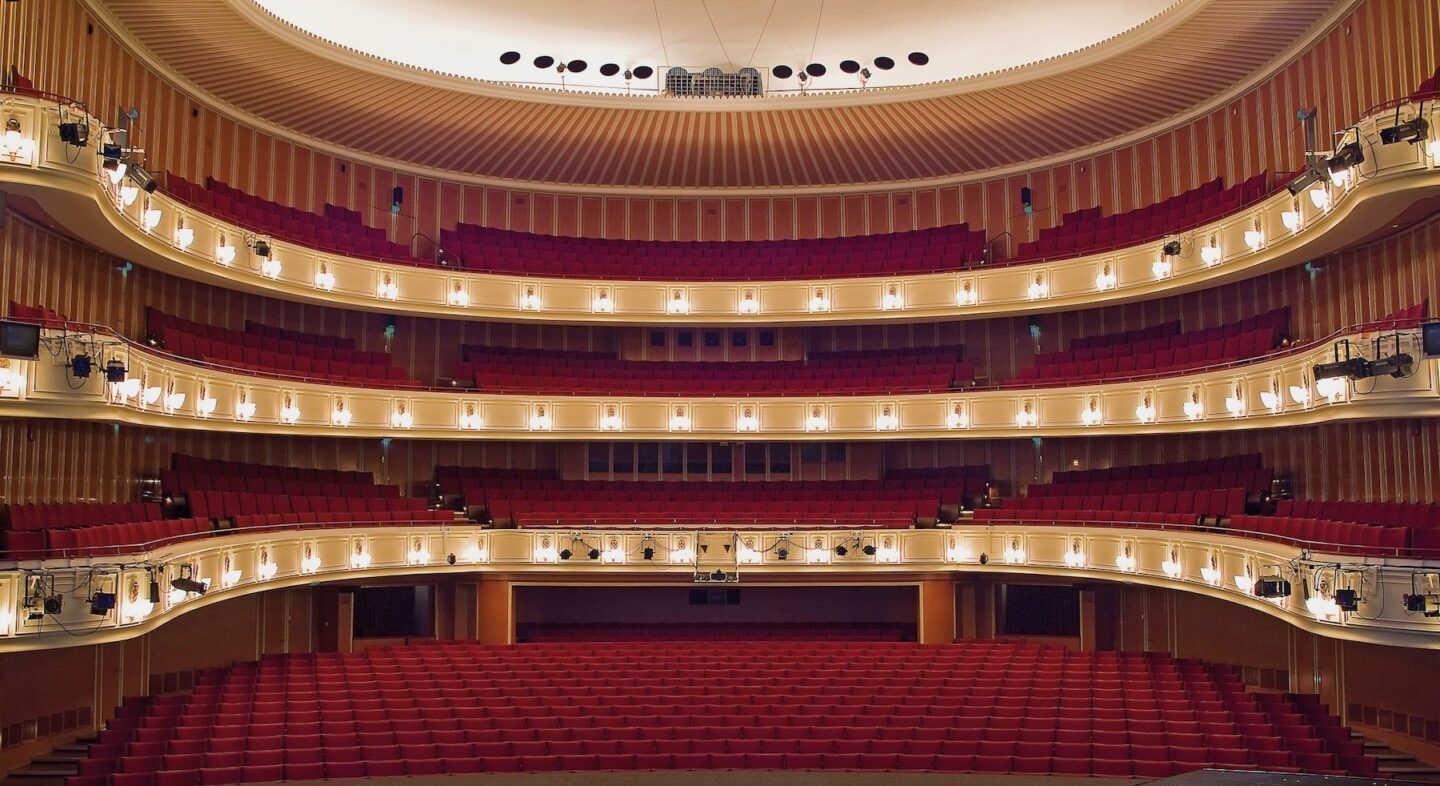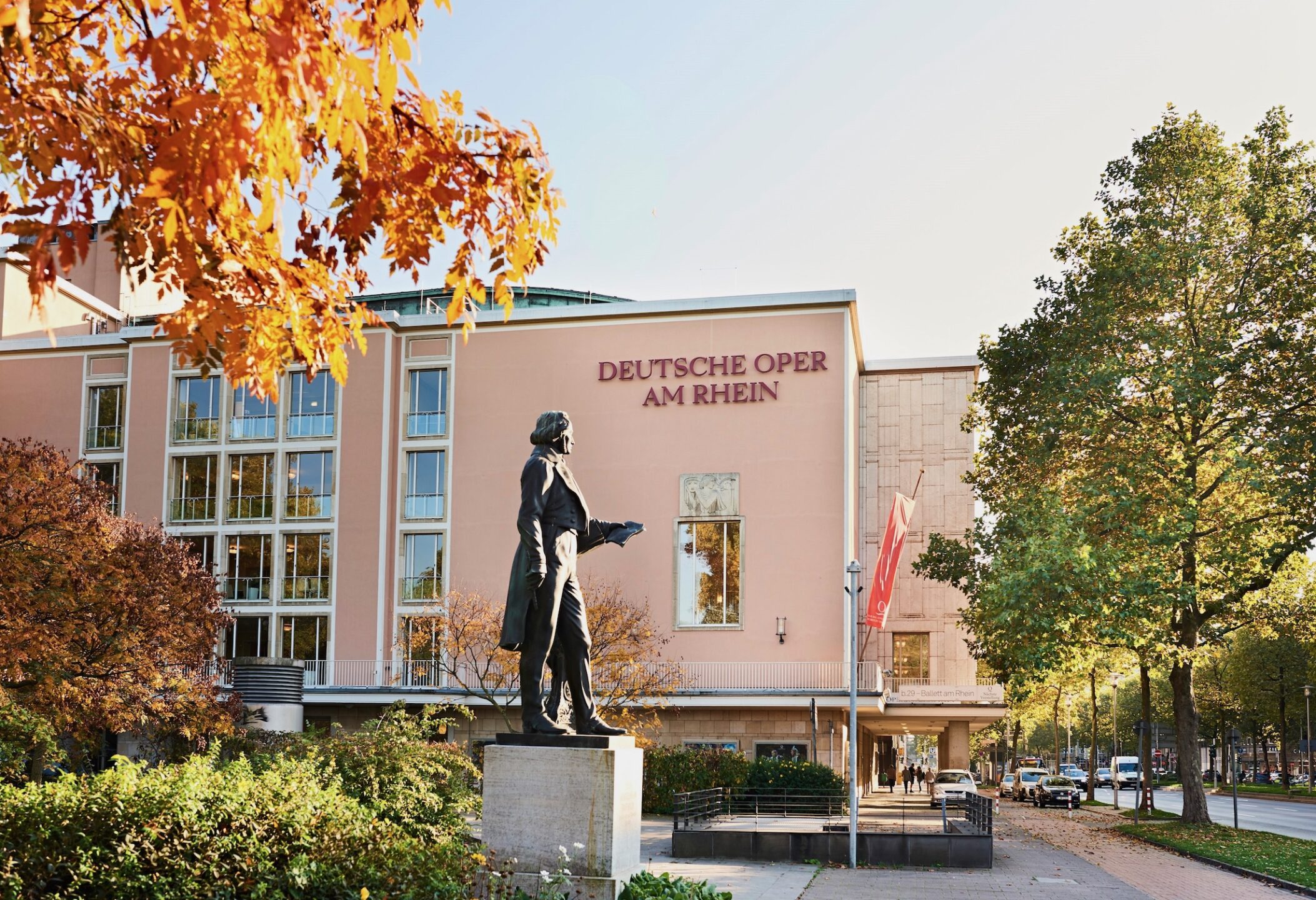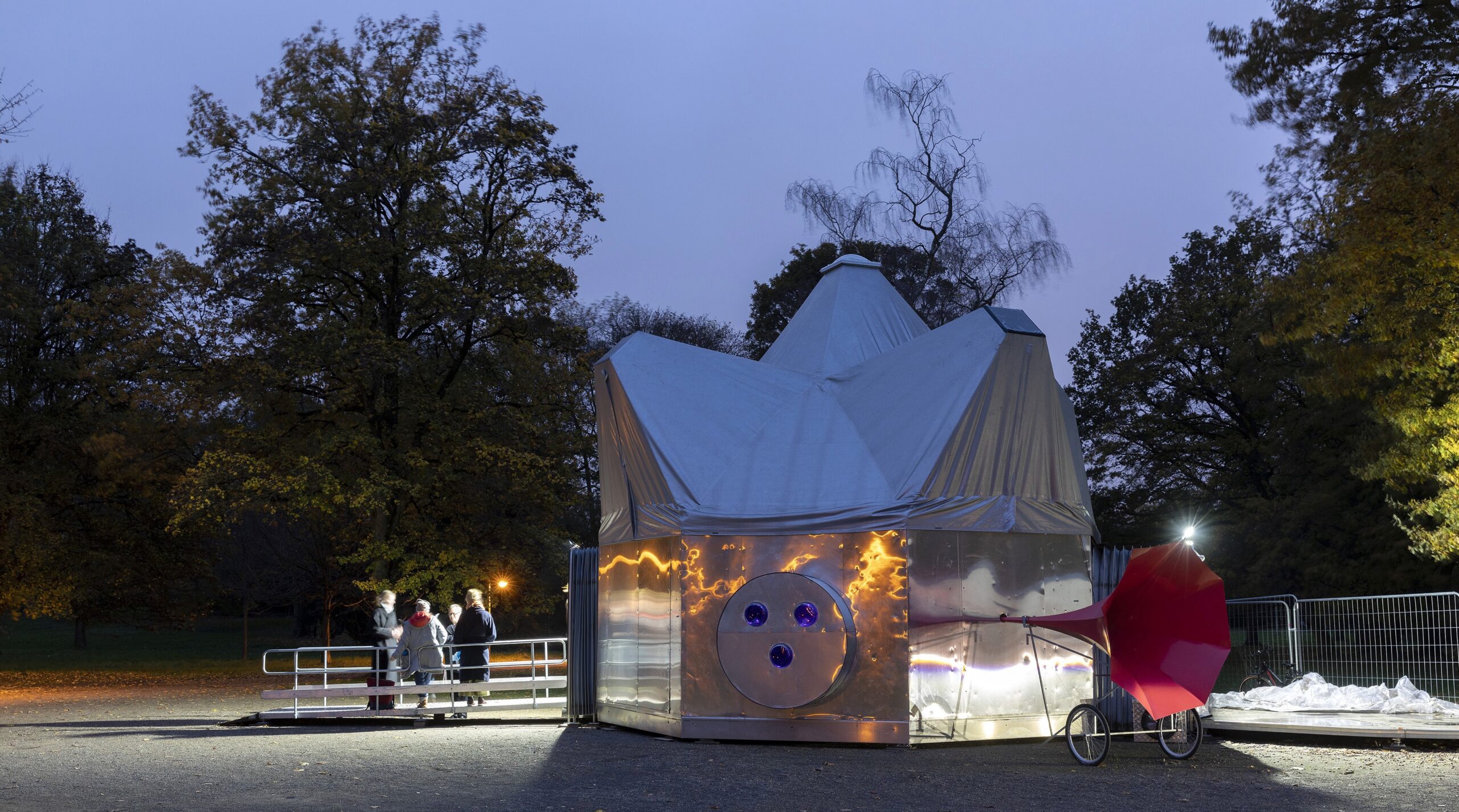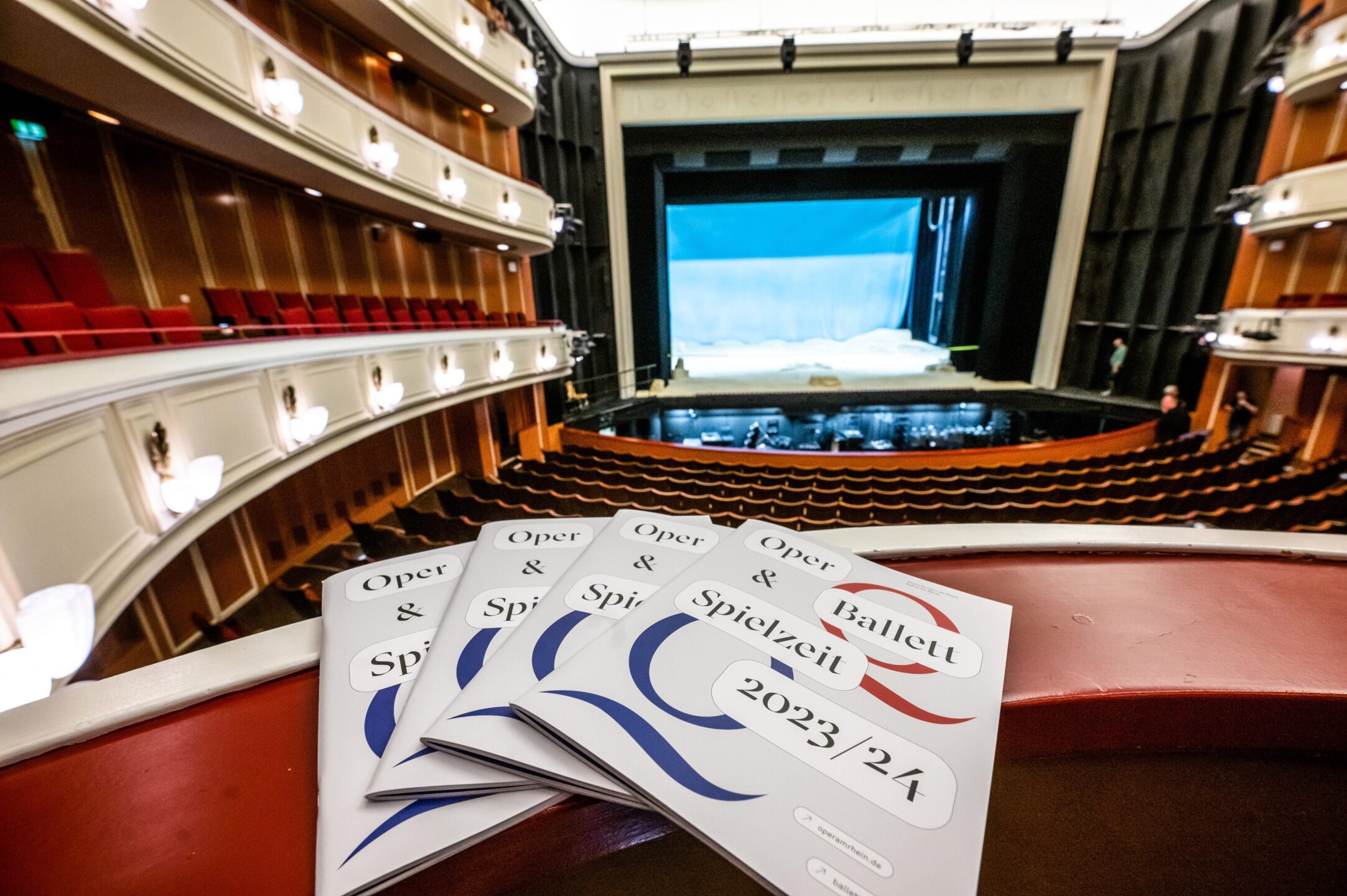Christoph Meyer on the appeal of opera


As part of our new series, Düsseldorf Talks, we talk to people from the arts and cultural scene who have a personal connection to Düsseldorf about their ties to the city, and together we take a look at inspiring, beloved, and frequently visited places in Düsseldorf.
For over a decade, the Deutsche Oper am Rhein has thrived under the guidance of its General Director, Christoph Meyer. After spending his childhood in Lüneburg, Meyer moved to Munich to pursue a degree in Theatre Studies and Music. It was during this early period that he began working for many notable opera houses; slowly (but steadily) building up a reputation for his deft artistic vision and solid leadership.
With a stacked resume that includes stints at such notable institutions as the Cologne Opera and Barcelona’s Gran Teatre del Liceu, his appointment as the General Director at the prestigious Düsseldorf opera starting in the 2009/10 season was met with great acclaim. With Meyer at the helm, the Deutsche Oper am Rhein has become a destination not just for fantastic programming, but also as an incubator for young talent.
Recently, we had the opportunity to talk with Meyer about his many achievements and the expansive youth program that he launched in the 2013/14 season — plus the impending decision by the city council on where the new opera house will be built. Read through to find out what his first impressions of Düsseldorf were many years ago, what his favorite spots in the city are, and much more.

Opernhaus Düsseldorf, Foto: Jens Wegener
Before joining the Deutsche Oper am Rhein as General Director at the start of the 2009/10 season, you worked extensively in Mannheim, Cologne, Berlin, Basel, Barcelona, and Leipzig, among other places. How did you first experience the city of Düsseldorf?
Düsseldorf was pretty much unknown to me beforehand, apart from a few brief visits during my time in Cologne. I was pleasantly surprised and delighted at how warmly and kindly I was welcomed here.
The city of Düsseldorf is currently in the middle of a competition for a new opera house. Seven designs have been shortlisted and in June, a decision will be made as to whether the new location will be on Heinrich-Heine-Allee or at the Wehrhahn. What does a new opera house mean for the city?
In many German cities, the topic of “conversion, renovation, or new construction” of theaters and opera houses is currently very dominant. In Düsseldorf, this process is very structured, transparent, and, above all, has strong political support. The new opera house is an excellent opportunity [to add to] the cultural life of the state capital. It stands for a broad acceptance of buildings and art forms in society and, as a cultural flagship and urban center, also has great relevance for tourism and the economy.
Thanks to the Kunstakademie, the many museums and collections, and many artists living and working in the city, Düsseldorf is an essential location for visual arts. How would you characterize the relationship between the visual and performing arts, and between the classical and other arts in the city? Are there overlaps, cooperations, or synergies?
The proximity of many cultural institutes, museums, and galleries is a unique characteristic of Düsseldorf. There are many contacts and collaborations among them, but certainly, more would be possible in this area.
How would you describe your personal relationship to contemporary visual art?
When my time permits, I enjoy catching up on the latest exhibitions and museums and seeing exciting new art. Also, through friendships with artists and gallery owners, opportunities to engage with visual art often arise. I enjoy those moments very much.

UFO im Volksgarten, Düsseldorf-Oberbilk, Foto: Rainer Schlautmann
You are known in part for the substantial work you did for the youth. In the 2013/14 season, you initiated the Young Operas Rhine-Ruhr project. Oper am Rhein now brings together musical theater, dance, and a young audience with three projects: Junge Oper, UFO, and “Tanz mit!” Can you tell us more about that?
We could do a lengthy interview about that in its own right! From the beginning of my directorship in 2009, children’s and youth work has been an extraordinary concern of mine, and we have put on a children’s opera on the big stage every year from the very beginning. In this cooperation, Junge Opern Rhein-Ruhr, which is unique in Germany, three theaters — Deutsche Oper am Rhein Düsseldorf Duisburg, Oper Bonn, and Theater Dortmund — have jointly commissioned new children’s operas since 2013.
Before Corona, we had up to 30,000 children and young people per season in our events in Düsseldorf and Duisburg. The goal is to get back to those numbers and have an even more significant impact in the various districts. The Essen Opera will join us as a new partner in the following season. With the mobile venue UFO (Junge Oper Urban), we have created a sound space and performance venue that arouses curiosity about new creative music theater in various districts of Düsseldorf and Duisburg with pieces developed especially for the UFO. In ballet, we launched “Tanz Mit!” (Join the Dance) some time ago, a program for dance education that offers, among other projects, “Leichter getanzt als gesagt” (“Danced More Easily than Said”). [They are all] very successful interactive projects, especially for children and young people.

Spielzeitheft 2023/24, Foto: Andreas Endermann
What is your favorite art place in Düsseldorf? What can you discover there?
I particularly like visiting the many individual galleries in Flingern during Gallery Weekend, for example. Of course, I also like going to the Kunstsammlung, the Kunsthalle, and the Kunstpalast, among others, depending on the program.
What are the highlights at your house this season, and what can we look forward to in the next season?
The current season is going very well and successfully after the severe restrictions of the Corona years. Highlights so far have been “Macbeth” and “The Flying Dutchman,” as well as “The Maid of Orleans” and “La Sonnambula;” the two latter operas never before performed at Deutsche Oper am Rhein. Furthermore, “Krabat” was an absolute highlight in ballet, and “Coppélia X Machina” was also very successful. In opera, we still have three premieres ahead of us: “Die tote Stadt” by Erich Wolfgang Korngold, Massenet’s “Hérodiade” (also for the first time in the history of the DOR), and the world premiere of our new children’s opera “Das fliegende Klassenzimmer.” In ballet, we look forward to “SACRE” and Demis Volpi’s new “Giselle.” We present the program and our various projects for the next season in the new 2023/24 season booklet.